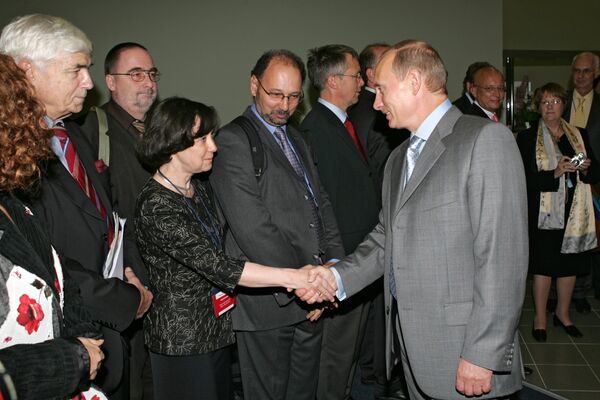RIA Novosti interview with Richard Sakwa, Professor of Russian and European politics at the University of Kent, Associate Fellow of the Russia and Eurasia Programme at the Royal Institute of International Affairs, Chatham House
Question: Which challenges are the most serious and demanding for today's Russia in your view?
Answer: The main challenge is to find an appropriate model of ‘the international’ in Russian domestic politics; while devising a model of ‘the political’ that can sustain domestic aspirations for autonomy while integrating this model of politics into a non-conflictual appreciation of the international.
Russia historically has had a problematical relationship with the hegemonic international system of particular eras, and this continues to this day. In part this is derived from structural factors, notably Russia’s typical tangential position in the dominant system. With very rare exceptions this relationship has been at the minimum strained, degenerating at times into outright hostility. It is also derived from identity factors, in particular Russia’s civilisational self-identification as a putative system creator as well as its implicit claim to equality in hegemonic orders. Thus ‘the international’ in Russian thinking has been both constitutive of its civilisational identity while at the same time the source of systemic conflict.
This double-sided appreciation of the international remains predominant in Russian thinking and policy today, and shapes its interactions with the world at large. As long as certain principles derived from international politics are seen by Russian elites as alien and imposed, they will remain instrumental and lifeless. The fundamental challenge thus is to ‘domesticate’ these principles and to make them a genuine Russian cause. For example, as long as the abolition of the death penalty is seen as something imposed from outside, it will not become a genuine national issue.
Question: What would you like to add to this year's Valdai agenda?
Answer: I have no particular items to add – the agenda over the years has been broad. Of course, following on from the point above, I would like to see some more discussion about the development of genuine constitutionalism in Russia.
Question: Are there any specific questions you would like to ask Russian politicians and officials if you have unlimited access to them?
Answer: The Yaroslavl session could be a turning point: allowing open discussion of problems of democratic development, in the context of a broader global crisis of democratic governance. It would be interesting to see whether Russian politicians have any answers to some of the most critical questions facing us today (environmental, population, human security and so on); and it would be interesting whether they have any ideas of any specifically Russian answers to these problems.
Question: What should the Russian expert society pay more attention to?
Answer: Russia’s contribution to resolving some of the broader problems of the world today; and in devising solutions to global problems, it would be interesting to see how new answers could emerge to deal with Russia’s own problems – including how to develop active citizenship and genuine participatory institutions in a pluralistic society.
Richard Sakwa is a professor of Russian and European politics at the University of Kent, England. Among his books are Putin: The Rise and Fall of the Soviet Union (Sources in History) 1999, Russia's Choice (Routledge, 2nd edition, 2007) and Russian Politics and Society (Routledge, 4th edition, 2008) Russian Politics and Society, 2008 and The Quality of Freedom: Khodorkovsky, Putin and the Yukos Affair, 2009



